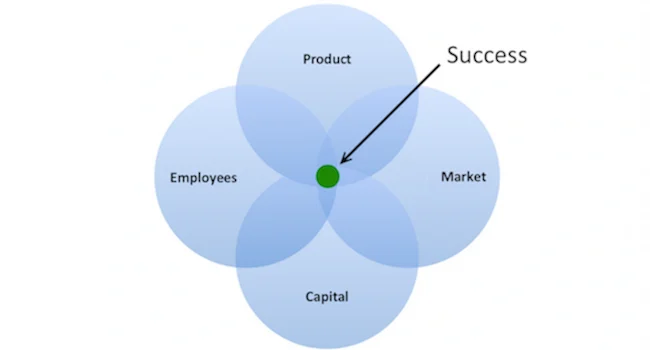
4 Major Reasons Startups Fail
On Thursday, I wrote about Why You Should Never Work at a Startup. In that article, I explained how working at a startup may not be the best idea for new graduates, and I explained why. Apparently, I touched a nerve. 70,000 of you read the article and more than 200 of you left a comment.
You may have thought that was a strange position for a guy who has been the CEO of three startups to take. But I disagree.
Let me reiterate that I was addressing new grads. I made the point that a startup may be a great fit for someone with a few years of experience, but I think folks who are just getting going benefit from what larger companies have to offer.
As expected, some of you shared your own negative experiences working for startups. Here is an example of someone who liked what I wrote.
In my experience, though, I’ve seen far more people who regret going the start-up route than with big companies. And that doesn’t surprise me, the temperament for start-ups is very different, and not everyone wants to be an entrepreneur, or even work very closely with one.
But more than 100 of you took issue with the article and disputed the idea that working for a startup early in your career may be a mistake. These really got me thinking.
Totally disagree with this post. You’ll find that most of these areas are more commonly associated with established companies and new graduates are often knotted into the cogs of their work as their underlings. Startups limit learning? This is where big companies fail, big time. In a startup, the team is usually small and most people have more responsibilities on their shoulders. Therefore you work and learn more.
I agree that the lure of working for a startup is strong with grads today and they can be exciting places. The problem is that most of them do not survive. And death spirals can be painful. Recent Gallup data shows 80 percent of new startups fail during the first five years.
That is why I believe that working for a startup is not a smart way to kick off your career.
Startups are tasked with the seemingly impossible. To survive they must find a great product, a growing market, reliable capital, and proven employees. They have to hit the perfect sweet spot in four key areas to succeed and have a little bit of good fortune along the way. Here are the four areas that they must get right.
Product Is the product driven by a big idea that will be loved by customers everywhere and be significantly better than other alternatives? Most entrepreneurs have lots of ideas but few of them are able to successfully turn that one big idea into a product customers want to pay for.
Market Many startups spend too much time focused on their product or service and not enough time finding a profitable market. Without customers, startups can only burn cash for so long before they run out of “runway” and close shop. And even when they do find a few customers, it’s not a slam dunk to be able to cost-effectively reach more of them.
Capital Unless the team is independently wealthy, startups require money to fund operations. And unless income is coming in (see Market section above) the balance sheet keeps getting more red. And if they do raise money, even the nicest aunt eventually would like her money back and venture capitalists want to see progress before investing more. A recent college graduate already has enough to worry about without wondering whether their next paycheck will bounce.
Employees A startup takes a special combination of people to survive and thrive. Not only does it take talent, but it takes people with the experience to make the proper decisions. Time is not a friend of an early-stage company that needs to discover its product and market and find money to fuel the business. There is little room for “learning on the job.”
Launching a startup is a difficult endeavor. It takes a great product at the right time for a profitable market, and an exceptional team to make it happen. It also takes a healthy dose of money to make it all a reality.
So again I say to the new graduates: Do not be lured blindly into the startup haze. You will not be the next Google or Snapchat. Choose the employment option that gives you the best chance to professionally grow and learn a craft from a diverse group of experts. And then go join a startup.




